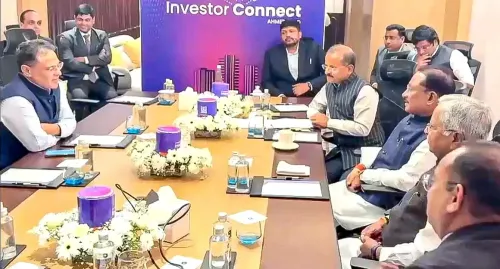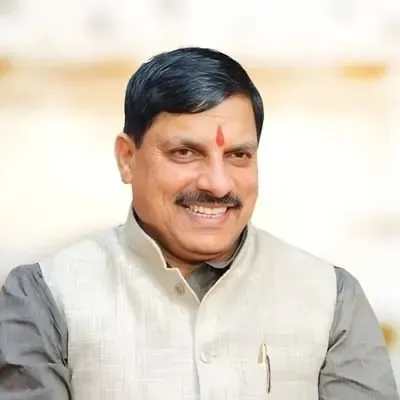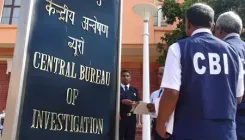What is Driving the Surge in Tourism in Madhya Pradesh?

Synopsis
Key Takeaways
- Madhya Pradesh has seen a surge in tourist arrivals, reaching 134.1 million in 2024.
- The state is focusing on sustainable tourism development.
- Investment in tourism infrastructure is growing rapidly.
- Emerging sectors like sports and medical tourism are gaining popularity.
- Madhya Pradesh is home to 18 UNESCO World Heritage sites.
Bhopal, Sep 27 (NationPress) The tourism sector in Madhya Pradesh has seen a noteworthy increase over the last five years, establishing the state as one of India’s premier travel hotspots. In 2024, Madhya Pradesh welcomed 134.1 million tourists, a significant rise from 89 million in 2019. Despite the COVID-19 pandemic and the ensuing travel restrictions that caused a drop in visitor numbers during 2020 and 2021, the state maintained its status as a favored destination.
With the lifting of restrictions and a return to normalcy in 2022, tourism experienced a robust recovery, achieving 112.1 million visitors in 2023 and climbing to 134.1 million in 2024, as per the data released by the state government ahead of World Tourism Day this Saturday.
The consistent growth in both domestic and international tourist arrivals highlights the increasing allure of Madhya Pradesh’s diverse attractions. Last year, Ujjain alone attracted over 70 million spiritual visitors, emphasizing the state's significance in religious tourism.
Chief Minister Dr. Mohan Yadav stated that tourism in Madhya Pradesh is driven by principles of sustainable development. He pointed out that core attractions remain focused on natural, cultural, spiritual, rural, and wildlife tourism, while emerging sectors like sports tourism, medical tourism, water sports, agricultural tourism, and heritage tourism are gaining traction.
Dr. Yadav attributed the growth of tourism in Madhya Pradesh to Prime Minister Narendra Modi’s vision, which has played a key role in enhancing India’s global image. He highlighted national initiatives such as Vocal for Local, Dekho Apna Desh, and the Triple T concept—Textile, Tourism, and Technology—as transformative strategies linking tourism to economic growth, job creation, women empowerment, and cultural revival.
Madhya Pradesh has also established itself as a center for global heritage. Out of India's 69 UNESCO World Heritage sites, 18 are located in the state, including the famous Khajuraho temple complex, Sanchi Buddhist monuments, and Bhimbetka caves.
Currently, three sites are listed as permanent UNESCO sites, while 15 others are on the tentative list, including Gwalior Fort, Mandu, Orchha, Chanderi, and Bhedaghat. The tourism sector has become a magnet for investment in the state, with recent Regional Tourism Conclaves in Rewa and Gwalior generating significant investor interest, with proposals surpassing Rs 3,000 crore in Rewa and Rs 3,500 crore in Gwalior.
Infrastructure development is also on the rise, highlighted by the launch of the PM Shree Tourism Air Service connecting Indore, Gwalior, Jabalpur, Bhopal, Rewa, Singrauli, Ujjain, and Khajuraho.
Under a public-private partnership, helicopter services will soon connect major cities, religious sites, national parks, and other tourist attractions, promoting affordable and sustainable air travel. This initiative is poised to enhance tourism, commerce, and employment across Madhya Pradesh, according to the statement.









